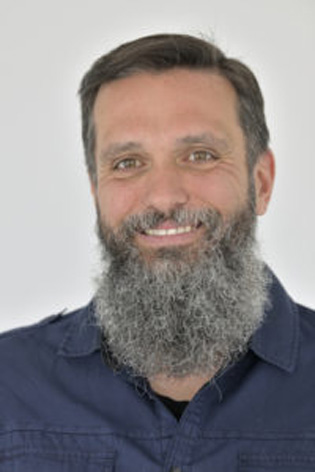| PALEOPATHOLOGY ASSOCIATION FOUNDED IN 1974 |
Executive Committee Members
The PPA is administered by an elected Executive Committee of PPA members. Our call for Nominations goes out in the Summer or early Autumn via email. To see what positions are open for election each year please check this website.
|
|
|
|
| .jpg) |
|
|
|
|
|
|
|
|
|
|
|
|
|
|
PPA Statement of Ethical Principles
The PPA Statement of Ethical Principles is designed to serve our global community and is a living document that will be modified through use and with time. Following the spirit of Hippocrates (460-375 BCE), we have a responsibility “to do good and do no harm”, recognizing that decision-making and relationships with other researchers and communities may be complex and challenging.
This Statement guides behavior of members toward the following:
- The people whose lives we have the privilege of studying.
- Descendent individuals and communities, including those related by a common genetic heritage, common cultural traditions, and other relevant parties.
- Colleagues, including students, with whom we interact in the conduct of paleopathological research, education, and outreach.
PPA Ethical Principles
All members of the Paleopathology Association (PPA) have fundamentally important ethical responsibilities to:
1. The people whose lives we have the privilege of studying. In so doing we shall:
a. Treat all remains with dignity and respect throughout engagement.
b. Study remains as part of a research design that includes addressing important questions about the deceased and their descendants.
c. Study remains in a manner that is non-destructive, unless explicitly required by #1b.
d. Collect and analyze data in an accurate, error-free manner.
e. Comply with all legal requirements for the study of non-human remains, whether national, regional, or institutional, and ensure that there is transparency about research findings.
f. Document data collection, including images and reproductions such that others may reproduce results (where permitted, see 1e).
g. Make results of study available to the scientific community, communities of interest, and non-specialist audiences promptly and responsibly.
2. Descendent individuals and communities, including those related by common traditions of genetic or cultural heritage, as well as communities of interest. We recognize that identifying such descendant communities and communities of interest will vary significantly, depending on global contexts. PPA members will:
a. Treat all communities with dignity and respect throughout engagement.
b. Comply with all legal requirements for the study of human remains, whether national, regional, or institutional.
c. Consult with appropriate communities in co-creating, executing, and reporting research.
d. Be mindful of the impact of their research on the interpretation of the lives of the deceased communities they work with, as well as how it may impact descendant communities.
e. Be mindful of the impact of their research on the lives of people living with diseases today.
3. Colleagues, including students, with whom we interact in the conduct of paleopathological research, education, and outreach. PPA members will:
a. Never discriminate.
b. Treat all people with dignity and respect.
c. When members work outside their own countries, engage with local scholars in building mutually beneficial relationships and infra-structure.
d. Create professional and ethical environments for all researchers.
e. Never exploit positions of power in relationship to colleagues in any context.
f. Recognize all contributions to research appropriately in co-authorship and acknowledgments.
g. Mentor, as appropriate, students and early career scholars.
PPA Code of Conduct (June 2022)
This code of conduct applies to all meetings, workshops, webinars, events and activities organised by the PPA.
The PPA is committed to providing a safe and friendly environment that is free of threats, intimidation, bullying, harassment, or assault, to all our members regardless of ethnicity, race, gender identity or expression, sexual orientation, disabilities, religion, socio-economic status, marital status, age, stage of career, or any other reason. It is unethical in any professional setting to use the inequalities of power that characterize many professional relationships to obtain personal, sexual, economic, or professional advantages. It is also unethical to engage in any type of harassment, including sexual, sexual identity, or racial/ethnic harassment and bullying. Due to their centrality in professional training and networking in our discipline, conferences (such as the PPA Annual Meetings) are clearly an extension of the workplace environment. As such, all college, university, or institutional rules regarding appropriate behavior apply in these contexts. In regard to our conferences (Annual Meeting, European Meetings, PAMSIA), this code of conduct applies to events both at and away from the conference venue, whether in-person or virtually, including any social events and breaks. The PPA will not tolerate harassment or intimidation of conference participants in any form, including within its Newsletter or on its social media platforms. Furthermore, the PPA will not tolerate retaliation against individuals reporting misconduct. In accordance with many workforce policies, examples of harassment include, but are not limited to:
- Use of offensive or insulting language, mimicking, use of derogatory terms
- Initiation or discussion of malicious rumours or unfounded allegations
- Belittling or patronising comments and ostracising behaviors
- Suggestive gestures, remarks, innuendo, unwelcome terms of endearment or sexual advances
- Displays of sexually suggestive or pornographic objects or images
- Unnecessary unwanted body contact
- Threatening language or behaviour
By being a PPA member and/or participating in a PPA event or activity, you acknowledge that you have read and understood this statement. The PPA reserves all rights to take any lawful and appropriate remedial and/or preventative action with respect to any individual who does not abide by this Code of Conduct, or disregards or violates sanctions imposed by other adjudicating bodies (e.g., court orders, universities) including, without limitation, removal from a meeting, reporting of incident(s) to appropriate authorities at the individual's home institution(s), barring the individual from future PPA meetings or events, and termination of the individual’s membership in the organization.









